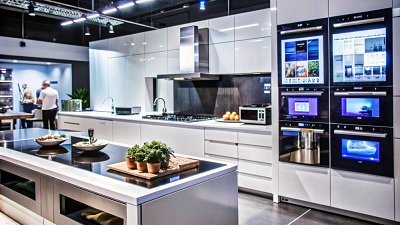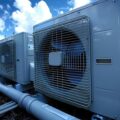Home appliances have become an essential part of our daily lives, transforming the way we live and work in our homes. From making cooking easier to keeping our homes clean, these devices save us time and effort, allowing us to focus on other aspects of life. In this comprehensive guide, we will delve into the world of home appliances, exploring their types, benefits, maintenance tips, and buying considerations to help you make informed decisions.
Types of Home Appliances
Home appliances can be broadly categorized into two types: small appliances and large appliances. Each category serves specific needs and contributes to household efficiency.
Small Appliances
Small appliances are portable or semi-portable machines that are generally used on countertops, tables, or other platforms. They are primarily powered by electricity and are designed to perform specific tasks. Common examples include:
- Microwave Ovens: Used for quickly heating or reheating food, microwave ovens are a staple in most kitchens. They use microwave radiation to heat food efficiently.
- Blenders and Mixers: Essential for preparing smoothies, soups, and various culinary delights, these devices are versatile and can handle a range of food preparation tasks.
- Coffee Makers: For coffee lovers, a coffee maker is a must-have appliance that brews coffee in minutes, offering convenience and variety with different brewing options.
- Toasters and Toaster Ovens: These appliances are designed to toast bread and bagels or cook small meals. They are compact and energy-efficient alternatives to larger ovens.
- Vacuum Cleaners: These appliances are critical for maintaining cleanliness in your home, available in various forms such as upright, canister, robotic, and handheld models.
Large Appliances
Large appliances are major household machines, often referred to as white goods. They are typically larger, more complex, and more expensive than small appliances. Examples include:
- Refrigerators: A key appliance in every household, refrigerators preserve food by keeping it cool. Modern refrigerators come with a variety of features such as frost-free technology, water dispensers, and smart connectivity.
- Washing Machines and Dryers: These appliances take care of laundry needs, with washing machines cleaning clothes and dryers ensuring they are ready to wear. They come in different configurations, such as top-loading, front-loading, and combo units.
- Dishwashers: Dishwashers save time and water by efficiently cleaning dishes, cutlery, and cooking utensils. Modern models offer multiple wash cycles, energy-saving options, and smart features.
- Ovens and Stoves: Essential for cooking, these appliances can be gas or electric-powered. They offer various features, including convection cooking, self-cleaning, and precise temperature controls.
- Air Conditioners and Heaters: These climate control appliances maintain comfortable indoor temperatures, with options ranging from window units to central systems and portable devices.
Benefits of Home Appliances
Home appliances offer numerous benefits that enhance daily living:
- Time-Saving: Appliances like washing machines, dishwashers, and microwave ovens significantly reduce the time spent on household chores.
- Energy Efficiency: Modern appliances are designed to consume less energy, helping you save on utility bills while reducing your carbon footprint.
- Convenience: From programmable coffee makers to robotic vacuum cleaners, appliances offer convenience and ease of use, simplifying complex tasks.
- Improved Hygiene and Safety: Appliances such as water purifiers, air purifiers, and refrigerators improve hygiene by providing clean water, air, and safe food storage.
- Enhanced Lifestyle: Smart appliances integrate with home automation systems, allowing you to control and monitor devices from anywhere, adding comfort and luxury to your home.
Maintenance Tips for Home Appliances
Proper maintenance of home appliances ensures they function efficiently and last longer. Here are some essential maintenance tips:
- Regular Cleaning: Keep your appliances clean to prevent the buildup of dirt, grease, and mold. For example, clean the filters in your air conditioners and vacuum cleaners regularly.
- Follow Manufacturer’s Instructions: Always read and follow the user manual for proper usage and maintenance instructions.
- Check for Leaks and Damages: Regularly inspect appliances like washing machines and dishwashers for leaks, and address any damages promptly to avoid further issues.
- Avoid Overloading: Do not overload appliances such as washing machines and dishwashers, as this can strain their components and reduce efficiency.
- Schedule Professional Servicing: For complex appliances like refrigerators and HVAC systems, schedule regular professional servicing to keep them running smoothly.
Buying Considerations for Home Appliances
When purchasing home appliances, several factors should be considered to ensure you make the right choice:
- Energy Efficiency: Look for energy-efficient appliances with good ratings. Energy Star labels can guide you toward products that save energy and lower your bills.
- Size and Space: Consider the space available in your home. Measure the area where the appliance will be placed to ensure a good fit.
- Features and Technology: Evaluate the features that are important to you, such as smart connectivity, energy-saving modes, or specific cooking functions.
- Budget: Determine your budget and look for appliances that offer the best value for your money without compromising on quality and performance.
- Brand Reputation and Warranty: Opt for reputable brands known for reliability and good customer service. A solid warranty can also provide peace of mind and protection against defects.
Smart Home Appliances: The Future of Home Living
Smart home appliances are the next step in the evolution of home technology. These devices connect to your home network, allowing you to control and monitor them via smartphones, tablets, or voice commands. Popular examples include smart refrigerators that notify you when groceries are low, or smart ovens that can be preheated remotely. Investing in smart appliances not only adds convenience but can also lead to significant energy savings and a more connected home environment.
Conclusion
Understanding home appliances and making informed decisions can greatly improve the quality of life in your home. By knowing the different types of appliances, their benefits, and maintenance requirements, you can ensure that your home runs smoothly and efficiently. Whether you’re upgrading existing appliances or investing in new ones, this guide aims to provide the essential knowledge needed to make the best choices for your household needs.




